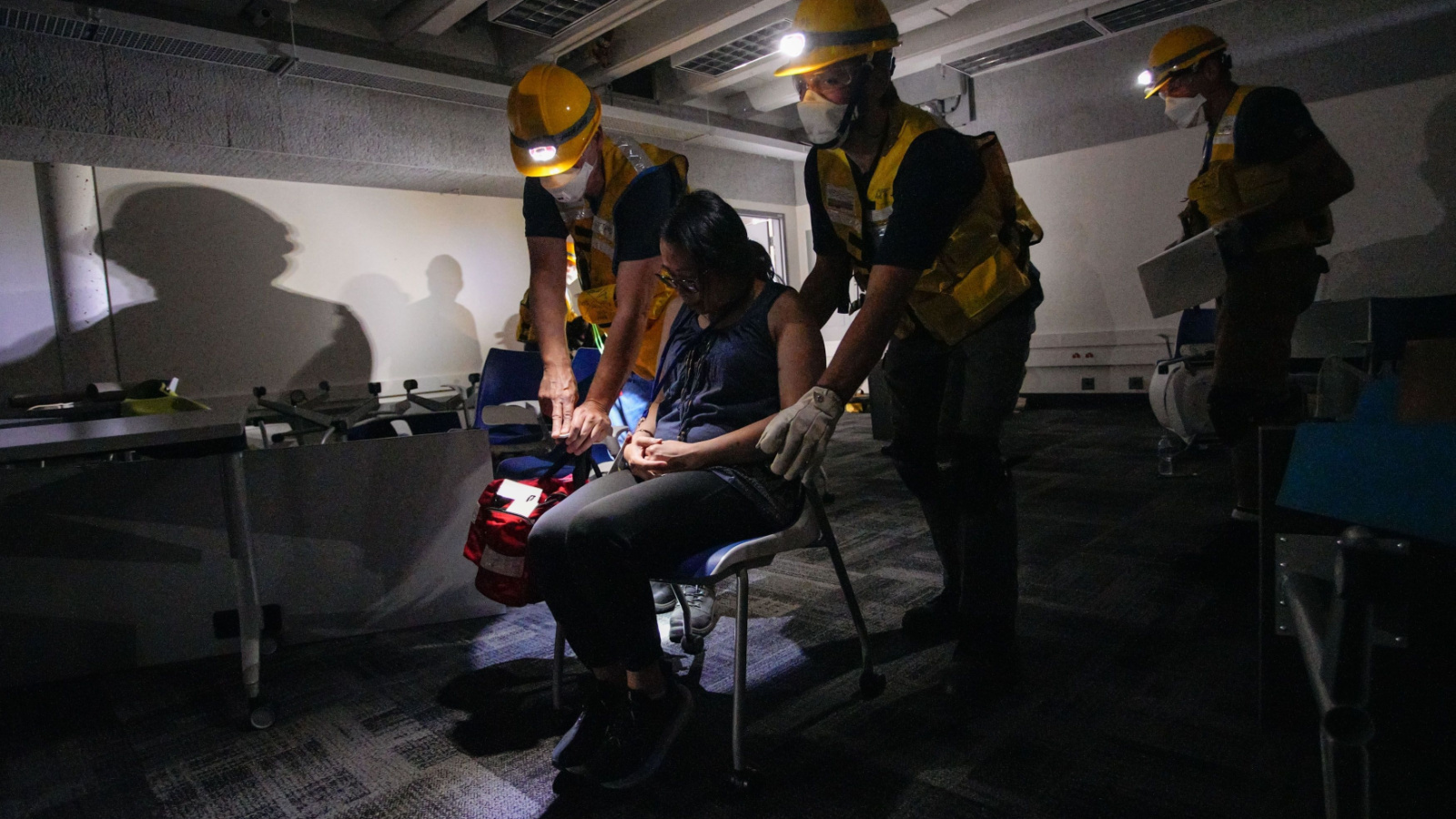Canada is often praised for its healthcare system, natural beauty, and polite culture, but many of its most impactful strengths receive little attention. Beyond the headlines, Canada quietly excels in areas like transparent governance, inclusive policies, and sustainable urban planning. These strengths don’t always generate international buzz, but they play a significant role in shaping a resilient, fair, and forward-thinking society. Here are 22 Canadian strengths that rarely make the news but matter deeply.
Resilient Middle-Class Economy

Canada’s economy consistently supports a strong and stable middle class, even amid global uncertainty. Wages, employment opportunities, and access to essential services help maintain a relatively high standard of living across much of the population. Economic policies often focus on income stability, social mobility, and equitable taxation. While challenges such as affordability and regional disparities exist, Canada’s middle class benefits from long-standing institutions that protect against severe inequality. This resilience contributes to social cohesion and sustained consumer demand, making it a quiet pillar of Canada’s long-term economic strength.
Strong Provincial Autonomy Within Federalism

Canada’s federal structure grants significant power to its provinces, allowing them to shape education, healthcare, and local governance according to regional needs. This decentralization enables diverse approaches to public services while still maintaining national cohesion. Provinces experiment with policy innovations and often pilot reforms later adopted more broadly. The system respects regional identity and helps prevent political overreach from the federal level. While coordination can be complex, this balance of autonomy and unity offers a model of shared governance that supports both flexibility and accountability.
Stable and Transparent Financial Regulations

Canada’s financial sector is backed by clear regulatory standards that promote transparency, trust, and stability. Institutions are closely monitored, with safeguards in place to manage risk and protect consumers. The country’s approach to banking regulation is often credited with helping it avoid the worst of the past global financial crises. Oversight agencies ensure compliance without stifling growth, encouraging a climate of responsible innovation. This framework supports economic resilience and maintains international confidence in Canada’s financial system.
High Voter Turnout in Local Elections

While national elections tend to dominate headlines, Canada also sees meaningful civic engagement at the municipal and provincial levels. Voter turnout in many local elections reflects a population that values participation and representation beyond federal politics. Community involvement, public forums, and issue-based campaigns help keep local governance active and responsive. This grassroots political engagement strengthens democracy and ensures that everyday concerns—like transit, zoning, and education—are addressed through accessible institutions.
Globally Respected Diplomatic Corps

Canada’s diplomatic service is known for its professionalism, neutrality, and emphasis on dialogue. Its diplomats often work behind the scenes to mediate disputes, strengthen multilateral agreements, and support human rights initiatives. Canada’s approach favors cooperation and long-term relationship building, rather than forceful posturing. As a result, Canadian voices are welcomed in diverse international arenas—from development aid to peace negotiations. This global reputation contributes to Canada’s ability to influence policy without needing to dominate the conversation, highlighting the country’s soft power and strategic patience.
Quiet Innovation in Health Technology

Canada has steadily built a reputation for advancing health technology through public research, university partnerships, and industry collaboration. From AI-assisted diagnostics to telemedicine platforms and medical imaging systems, Canadian innovation often focuses on improving accessibility and patient outcomes. These developments are frequently integrated into public health services, making cutting-edge tools more broadly available. Despite not always dominating headlines, Canada’s contributions in health tech are practical, scalable, and patient-centered.
World-Leading Water Management Systems

Canada’s approach to water conservation and infrastructure is quietly advanced, shaped by its vast freshwater reserves and commitment to environmental stewardship. Municipal systems emphasize quality, safety, and efficient delivery, while rural and Indigenous water initiatives are increasingly prioritized. Investments in watershed protection, wastewater treatment, and sustainable usage policies demonstrate a long-term perspective on one of the world’s most critical resources. While other countries struggle with scarcity or pollution, Canada’s proactive governance of water helps preserve both ecological balance and public health.
Strong Culture of Volunteerism

Volunteering is deeply embedded in Canadian society, with millions of people offering time and skills to support community initiatives, charities, and public programs. This culture of giving back strengthens social bonds, builds resilience, and often fills gaps where formal services may fall short. Whether helping during natural disasters, mentoring youth, or supporting arts and culture, volunteers play a vital role across sectors. Government and nonprofit support for volunteerism keeps this spirit alive, reinforcing a sense of shared responsibility and local empowerment.
Support for Public Libraries and Literacy

Canada’s public library systems are not just repositories of books; they are vibrant community hubs offering access to technology, programming, and learning resources for all ages. Supported by public funding, libraries across the country promote digital inclusion, literacy, and lifelong education. They often serve as safe, welcoming spaces in both urban and rural areas. In addition, national and provincial literacy initiatives work to reduce barriers to reading and education. This strong foundation in public knowledge infrastructure contributes to an informed, connected, and empowered population.
Commitment to Peaceful Political Discourse

Canadian political culture, while diverse and occasionally contentious, generally avoids the aggressive polarization seen in many other democracies. Public debate often emphasizes civility and compromise, even during periods of disagreement. Parliamentary procedures, independent media, and legal protections support an environment where discourse can be rigorous yet respectful. This tone reflects not only the institutions in place but also a broader societal preference for stability and dialogue. While tensions exist, Canada’s relatively calm political atmosphere is an understated but valuable national asset.
Low Levels of Political Extremism

Compared to many countries grappling with rising political radicalization, Canada maintains relatively low levels of organized extremism. Strong civic institutions, effective law enforcement, and a broad political center contribute to this stability. Public discourse tends to prioritize policy over ideology, and extremist movements generally find limited traction. Educational systems, inclusive values, and proactive community engagement also help limit the spread of divisive narratives. This resilience doesn’t eliminate risks, but it reduces the likelihood of major disruption, allowing democratic processes to function with fewer threats.
Comprehensive Consumer Protection Laws

Canada’s legal framework includes robust consumer protection laws that cover product safety, fair advertising, contract clarity, and data privacy. Federal and provincial agencies actively regulate business practices to ensure that individuals are treated fairly in the marketplace. Consumers have access to dispute resolution mechanisms, and many industries are required to provide transparent pricing and warranty standards. These protections help build trust in both public and private sectors, reinforcing a market environment where fairness and accountability are the norm. While not always visible, this legal backbone enhances daily life for Canadians across all income levels.
Strong Worker Protections and Labor Standards

Canada enforces labor laws that prioritize worker safety, fair wages, and reasonable working hours. Employment standards vary by province but generally include protections such as paid leave, minimum wage regulations, and workplace safety oversight. Unions remain active in many sectors, and legal frameworks support collective bargaining rights. In addition, laws address issues like workplace harassment and discrimination. These standards contribute to economic stability and worker well-being, and they help ensure that employees across industries benefit from consistent and fair treatment on the job.
Respected Legal System with Independent Courts

Canada’s legal system is built on the principle of judicial independence, with courts operating free from political interference. The rule of law is upheld through transparent legal procedures and accessible justice mechanisms, including legal aid and public defenders. Supreme Court decisions are respected and widely followed, helping shape policy and protect constitutional rights. This institutional integrity ensures that laws are applied fairly and consistently, fostering public trust.
Resilience of Indigenous Cultural Revitalization

Across Canada, Indigenous communities are leading efforts to preserve and strengthen their languages, traditions, and governance structures. From community-run schools and cultural centers to media outlets and language immersion programs, these initiatives are reshaping the national narrative. Governments and institutions are increasingly supporting these efforts through funding, legal recognition, and partnership. While the impacts of colonization are ongoing, Indigenous cultural revitalization reflects a broader movement toward self-determination and resilience.
Accessible Mental Health Resources

Mental health is increasingly treated as a public priority in Canada, with expanded services integrated into healthcare systems, schools, and workplaces. Public campaigns aim to reduce stigma, while funding supports access to counseling, crisis services, and peer support. Though gaps still exist, especially in rural and underserved areas, the overall direction is toward greater inclusivity and early intervention. Programs tailored to youth, Indigenous communities, and veterans reflect efforts to reach those most in need. Canada’s evolving mental health framework recognizes that well-being is foundational to public health.
Leadership in Public Pension Sustainability

Canada’s public pension model, including the Canada Pension Plan and Old Age Security, has been praised internationally for its long-term sustainability and sound management. These programs are regularly reviewed, transparently administered, and backed by independent investment boards. The system aims to provide reliable income for seniors without placing excessive strain on future generations. By balancing public responsibility with fiscal discipline, Canada offers a pension framework that many countries look to for inspiration. This financial security in retirement helps reduce poverty among older adults and supports a stable aging population.
Proactive Urban Planning Initiatives

Canadian cities are increasingly adopting urban planning strategies that emphasize sustainability, accessibility, and livability. From transit-oriented development and green spaces to affordable housing frameworks and mixed-use zoning, urban planners aim to build inclusive communities for long-term growth. Municipal governments often consult with residents and experts to shape development that reflects local needs and environmental goals. Cities like Vancouver, Toronto, and Montreal serve as models for balancing density with livability. These proactive efforts help manage urban expansion, reduce congestion, and enhance the overall quality of life for residents.
Steady Investment in Scientific Research

Canada’s ongoing commitment to publicly funded research drives progress in fields such as healthcare, energy, environmental science, and technology. Federal grants, academic partnerships, and innovation hubs foster collaboration between universities, research institutes, and private industry. This investment helps attract top global talent and supports breakthroughs that benefit both domestic and international communities. While less flashy than private-sector innovation headlines, Canada’s research ecosystem plays a vital role in its global competitiveness and ability to respond to complex challenges, from climate change to public health.
Effective Emergency Preparedness Systems

Canada places a strong emphasis on emergency planning, with systems in place to respond to natural disasters, health crises, and security threats. Federal and provincial agencies coordinate responses through established protocols, real-time communication networks, and cross-border partnerships. Public education on safety and preparedness is also a regular component of disaster readiness. Canada’s ability to mobilize quickly and effectively while maintaining transparency has earned international recognition. Whether responding to wildfires, floods, or pandemics, this readiness helps minimize disruption and protect public safety.
Inclusive Policies for Persons with Disabilities

Canada has made significant strides in ensuring that people with disabilities have access to equal rights, opportunities, and services. Federal legislation, such as the Accessible Canada Act, combined with provincial policies, aims to remove barriers in employment, transportation, digital access, and public infrastructure. Support programs and inclusive education also help integrate individuals with disabilities into all areas of life. These policies are increasingly developed in consultation with disability advocates, reflecting a shift toward rights-based inclusion rather than just accommodation.
Strong Public Broadcasting and Educational Media

Canada supports a robust public broadcasting system led by organizations like CBC/Radio-Canada, which deliver news, cultural programming, and educational content in multiple languages. These outlets aim to reflect the diversity of the population while promoting Canadian perspectives on global issues. Educational media platforms are also widely available through public television, libraries, and digital services, offering free access to high-quality learning resources. In an era of media consolidation and misinformation, Canada’s public broadcasting remains a trusted source for balanced information and national dialogue.
21 Products Canadians Should Stockpile Before Tariffs Hit

If trade tensions escalate between Canada and the U.S., everyday essentials can suddenly disappear or skyrocket in price. Products like pantry basics and tech must-haves that depend on are deeply tied to cross-border supply chains and are likely to face various kinds of disruptions
21 Products Canadians Should Stockpile Before Tariffs Hit
